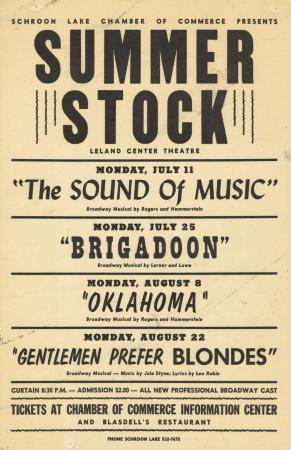What is the difference between traditional and summer stock theatre? Expert Panelist, Bridgette Karl walks us through the three major differences in this week’s post.
As actors, we find ourselves explaining bits and pieces of our career to friends and family all the time. No one really understands our industry at first. Nine times out of ten, you will have to explain it to them and after you do, they usually respond with, “Whoa, I don’t know how you do it!” This crazy career comes with plenty of unknowns and varying circumstances but at the end of the day it is “oh so worth it!”
One of the things I find myself constantly explaining to people is the difference between a summer stock and traditional show contract. The topic of summer stock comes up every summer – surprise! I love it, but summer stock is its own beast.
The differences between the two experiences are threefold:
- Rehearsals
- Performances
- Contract Length
“Wait, you put that show up in two weeks?!”
Yes, we did. Generally, during a summer stock contract, you are granted an average of two weeks rehearsal – that’s including tech week y’all – and yes, they are typical, full-length productions! You’d be surprised how much you can do and learn in a short amount of time. However, doing your homework beforehand and coming into the rehearsal process prepared is crucial! I try to come in almost completely memorized so I can really focus on my character work and connecting with my castmates. I heard a quote the other day that laid this concept out rather brilliantly. Unfortunately, I don’t remember the exact quote or its author, but it went something like this: “The time you have to complete something, is all the time you need to complete it.” Needless to say, whether you have two months or two weeks, if you are dedicated and driven, you can get it done!
Performance schedules also vary. Sometimes summer stock theatres will have just two weekends of shows and you’re done. Others will perform a set amount of dates but, in rep* throughout the summer.
*Side Note: “Rep” or Repertory Theater is when a resident theatre company presents shows from a specified repertoire, usually in alternation or rotation vs. blocked out performances.
A standard weekend of performances in rep might look like this:
Thursday: Beauty and the Beast
Friday: Legally Blonde
Saturday: Pinkalicious (children’s matinee) & Legally Blonde (evening)
Sunday: Beauty and the Beast

On a traditional show contract, you do one show three to eight times per week until the contract is over. A little less multitasking goes on here!
The length of a contract also varies depending on what kind of contract you’re on. Summer stocks are usually a solid three-month commitment (mid-May to mid-August). Whereas traditional contracts can range anywhere from one to five months. It depends on how long the show runs for and what time of year it is. My longest contract was a month of rehearsals and a three-month run!
I personally look forward to doing summer stock during the summer (duh, obviously) and traditional shows the rest of the year. A little tidbit that both contracts have in common is that you really get to know your castmates. Because you’re with them every day for a matter of months, you get to work with a lot of different people from all walks of life. I have met some of my best friends on show contracts (summer stock and traditional)!
If you have any other questions, feel free to let me know by leaving a comment. Happy Holidays!